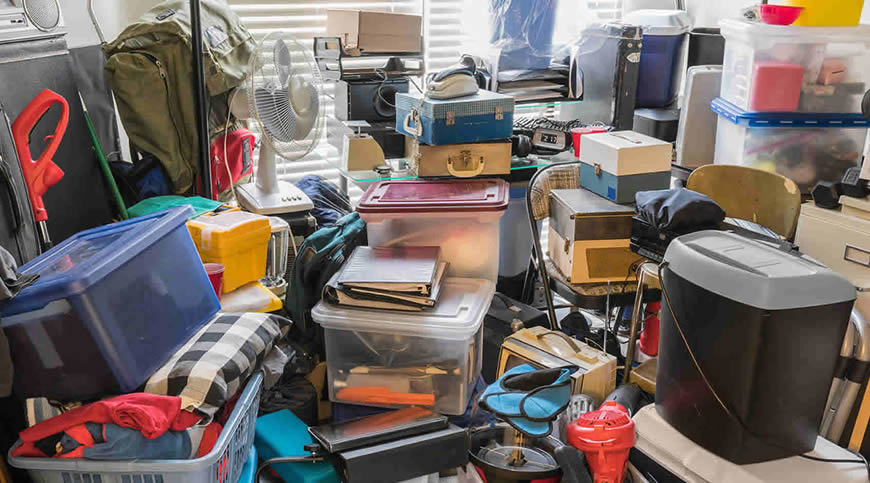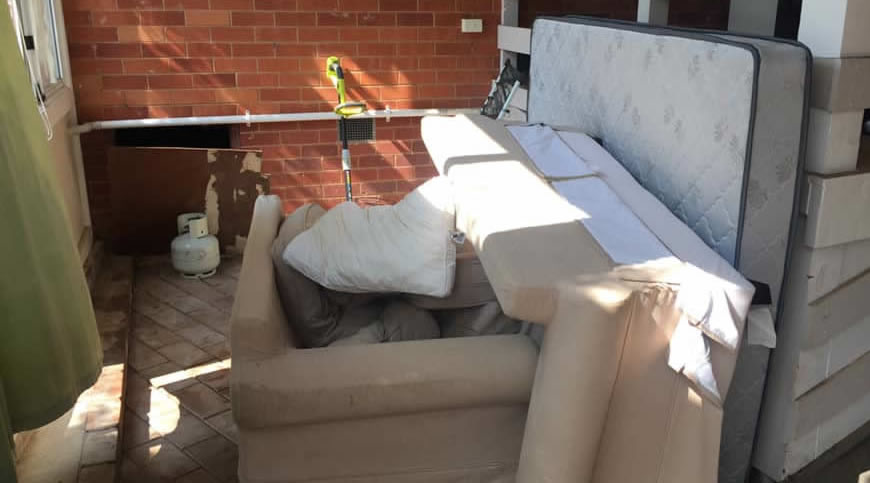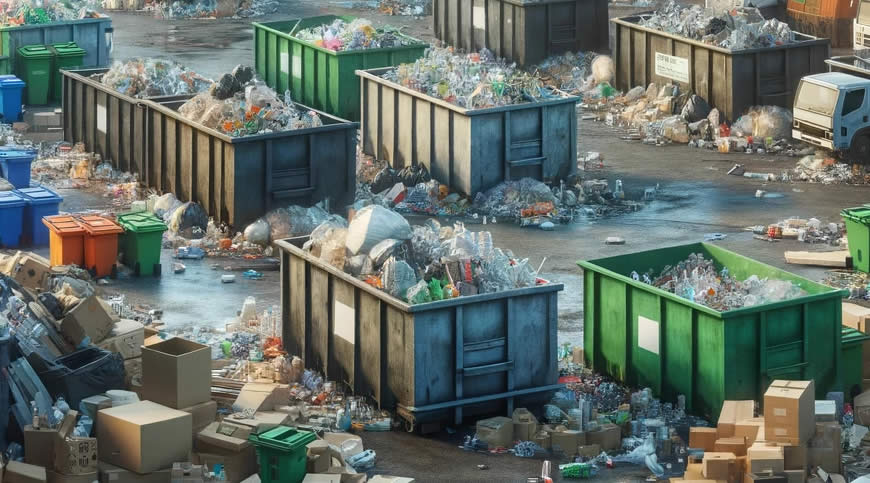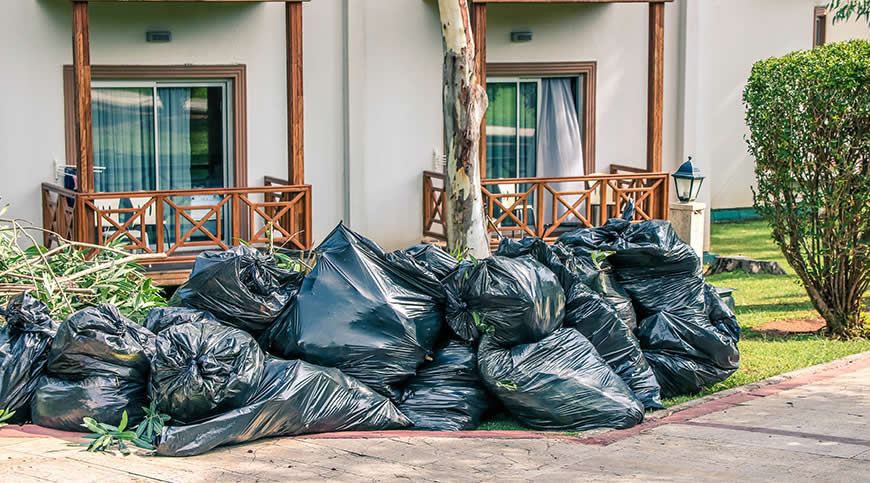
How often do you find yourself taking out the rubbish bin? If it's frequently, then you're not alone. Many households struggle with managing waste. But, the good news is - it doesn't have to be that way!
Reducing household waste is not just good for the environment, but also for your wallet and sanity. Imagine a clutter-free home, fewer trips to the bin, and the satisfaction of making a positive environmental impact. Sounds good? Then let's dive into some effective strategies for reducing household waste.
- Plan your meals: By planning your meals, you can avoid overbuying and consequently, food wastage. Remember, your fridge is not a food museum!
- Buy in bulk: Purchasing products in bulk reduces packaging waste. Plus, it's often cheaper!
- Reuse: Before throwing something away, think if it can be reused. Old jars for storage, perhaps?
As the saying goes, "one man's trash is another man's treasure". The key to reducing waste is to shift our perspective and see waste not as garbage, but as a resource.
Stay tuned as we delve deeper into each strategy, providing practical tips and examples to help you on your journey to a waste-free household.
Reducing food waste in the kitchen
It's shocking to know, isn't it, that nearly 30% of the food we buy ends up in the bin? But don't worry! You can make a massive difference in your own kitchen with just a few simple changes.
Plan and Prep
Ever come back from a grocery haul only to find your fridge already stuffed to the brim? You're not alone! A bit of forward planning can help:
- Plan your meals: Take a few minutes every week to plan your meals. This helps to avoid buying unnecessary items.
- Purchase with purpose: Stick to your shopping list and resist the temptation of impulse buys.
- Prep ahead: Preparing meals ahead not only saves time but also reduces waste. How? By ensuring every bit of bought food gets used.
Store Smartly
Did you know that storing food incorrectly is a common cause of food waste? Let's fix that:
- First-In, First-Out: Use older items first. This simple principle ensures nothing gets forgotten at the back of the fridge.
- Understand expiry dates: 'Best before' doesn't mean 'poisonous after'. Most foods are safe to eat a few days past this date.
- Freeze, don't throw: If you can't use something in time, freeze it. It's your best weapon against food waste.
Embrace Leftovers
"Waste not, want not," as the old saying goes.
Instead of chucking leftovers, why not treat them as ingredients for your next culinary creation? Leftover veggies can make a tasty stir-fry, stale bread can be transformed into crunchy croutons, and overripe fruit is perfect for a smoothie.
|
Leftover |
New Dish |
|
Vegetables |
Stir-fry or Soup |
|
Stale Bread |
Croutons or Bread Pudding |
|
Overripe Fruit |
Smoothie or Jam |
Reducing kitchen waste is all about being mindful of what you buy, how you store it, and how you use it. It's good for the planet, good for your wallet, and very good for your creativity in the kitchen. Give it a go!
Sustainable shopping strategies
Do you find yourself overwhelmed by the amount of waste produced in your household each week? You are not alone. The good news is that making a few simple changes to your shopping habits can significantly reduce your waste output.
1. Choose products with minimal packaging
When shopping, opt for products with minimal or no packaging. For example, buy fresh fruits and vegetables instead of canned or packaged ones. The difference it makes may seem small initially, but over time, the reduction in waste can be substantial.
2. Buy in bulk
Buying in bulk can significantly reduce the amount of packaging waste. However, remember to only buy quantities you can consume before they spoil, to avoid creating food waste.
3. Bring reusable bags and containers
Bringing your own bags and containers when shopping is an effective way to reduce waste. Many stores now encourage this by charging for plastic bags.
- Tip: Keep a set of reusable bags in your car or near your front door so you don't forget them when you go shopping.
4. Choose reusable over disposable
Wherever possible, choose reusable items over disposable ones. For instance, a reusable coffee cup or water bottle can replace countless disposable ones over its lifetime.
|
Disposable item |
Reusable alternative |
|
Plastic water bottle |
Reusable water bottle |
|
Paper coffee cup |
Reusable coffee cup |
|
Plastic shopping bag |
Reusable shopping bag |
"Be the change you want to see in the world" - Mahatma Gandhi. We can all do our part to reduce household waste by making more sustainable choices in our everyday lives.
DIY upcycling ideas for household items
Let's face it, we all have junk. But how about turning your clutter into something fabulous? Upcycling is the way forward, giving a new lease of life to items you might otherwise throw away. It's creative, fun, and reduces household waste.
1. Transform Glass Jars
Finished with that jam jar? Collect a few, clean them out and you've got some trendy new storage containers. Use them in the kitchen for spices or grains, or in the bathroom for cotton wool balls or bath salts. The possibilities are endless!
2. Reimagine Old Furniture
Before you chuck out that worn-out chair or coffee table, think about how it could be repurposed. With a lick of paint, some reupholstery or a bit of sanding, you’ll be amazed at what you can achieve.
3. Get Creative with Textiles
Got old clothes, bed linen or towels that have seen better days? Don't bin them just yet. You could turn them into quilts, cushion covers, or even rag rugs. Not only will you be reducing waste, but you'll also be creating something truly unique.
Remember: Upcycling isn't just about being thrifty, it's about reducing our impact on the planet. Every item we repurpose is one less item in landfill. So why not see what you can create from your household waste? You might surprise yourself!
Teaching kids about waste reduction
If we want to make a lasting impact on our environment, we must start by educating the young ones about waste reduction. They are, after all, the future caretakers of our planet.
1. Make it Fun and Engaging
Learning about waste reduction doesn't have to be a chore. Spice things up a bit and make it fun! Try creating games that promote recycling or composting. For instance, set up a recycling contest and see who can recycle the most items in a week. The winner gets a reward. This way, kids will look forward to reducing waste.
2. Incorporate Visual Learning
Children are visual learners. Use this to your advantage by creating colourful charts or posters that showcase the benefits of recycling or the harm caused by waste. Better yet, have your child be part of the creative process. They'll feel more invested in the cause.
3. Practise What You Preach
Children learn best by example. Show them that you're committed to reducing waste in your daily activities. Whether it's using reusable shopping bags, composting kitchen scraps, or recycling old newspapers, let them see that waste reduction is a lifestyle, not just a lesson.
- Top Tip: Always explain why you're doing what you're doing. Kids are curious creatures. Satisfying their curiosity will help them understand and appreciate the importance of reducing waste.
Remember, change starts at home. By teaching our children about waste reduction, we're not just creating a sustainable future for them but also instilling values they'll carry throughout their lives.
Innovative waste reduction technologies
Embracing the Future: Composting
Composting is an innovative method to reduce household waste drastically. It's simple, efficient, and incredibly eco-friendly. By composting, you can convert organic waste into a nutrient-rich soil conditioner, perfect for your garden.
How to start? It's easy! Begin by collecting green waste like fruit peels, vegetable scraps, coffee grounds, and eggshells. Then, add brown waste, like dry leaves, twigs, or paper. Ensure you maintain a balance between the two. Mix it occasionally, and nature will do the rest!
A Charitable Disposition: Donating
One person's trash is another person's treasure. By donating unwanted items, we can reduce waste while helping those in need. Not only can you give away clothes and toys, but also furniture, appliances, and even food.
There are several charities and organisations that welcome these items. Just remember, everything should be in good, usable condition. After all, the goal is to provide benefit, not burden.
Waste Not, Want Not: Reducing Packaging
Unnecessary packaging is a significant contributor to household waste. But there are ways around it! Simple choices can make a huge difference. Opt for loose fruits and vegetables over packaged ones. Choose products with less or recyclable packaging. Take your own bags, containers, and cups when shopping or dining out.
"We don't need a handful of people doing zero waste perfectly. We need millions of people doing it imperfectly." - Anne Marie Bonneau
Remember, every little effort counts. Let's make a difference, one trash bag at a time.


